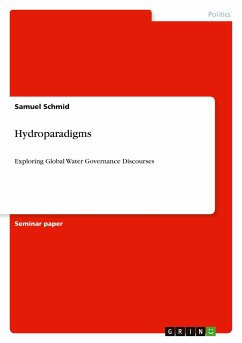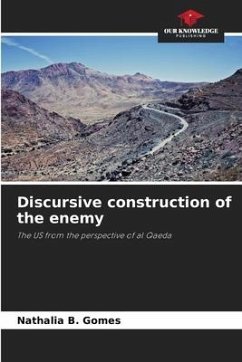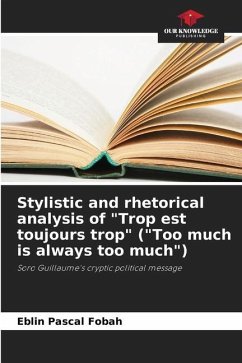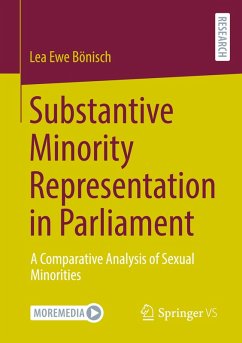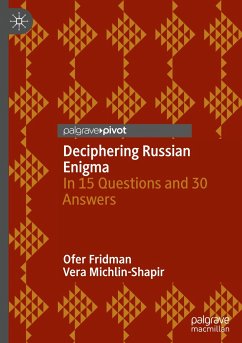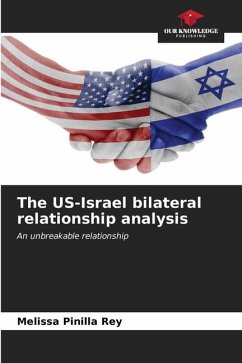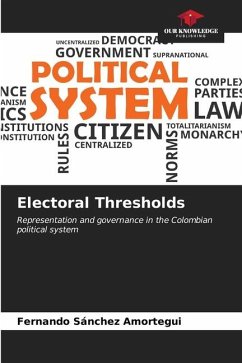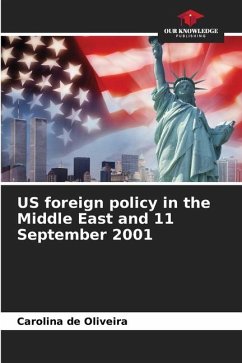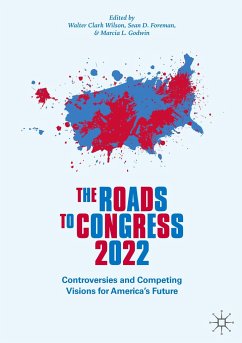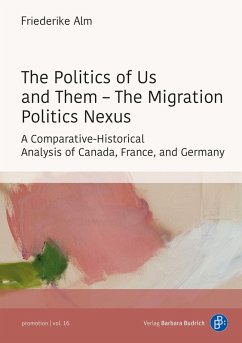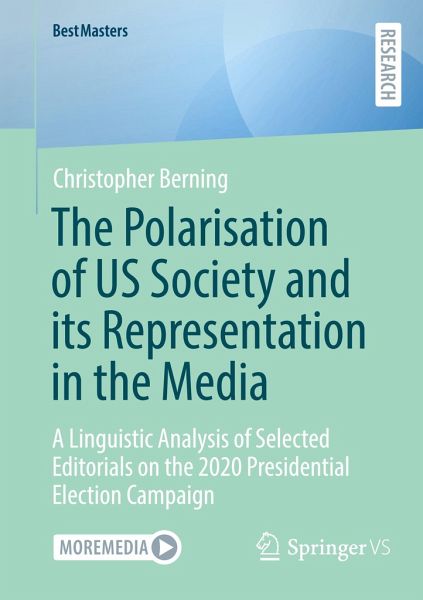
The Polarisation of US Society and its Representation in the Media
A Linguistic Analysis of Selected Editorials on the 2020 Presidential Election Campaign
Versandkostenfrei!
Versandfertig in 6-10 Tagen
68,99 €
inkl. MwSt.

PAYBACK Punkte
34 °P sammeln!
This book is concerned with the polarisation of US society as represented in 27 editorial articles on the presidential election campaign 2020, taken from three different newspapers. The aim of the study is to develop an integrated framework for the linguistic analysis of societal polarisation, which combines findings from the political sciences and sociology with critical linguistic concepts from political discourse analysis and newspaper discourse analysis. The main finding is that all three newspapers, irrespective of their political orientation, make use of polarising discourse around the p...
This book is concerned with the polarisation of US society as represented in 27 editorial articles on the presidential election campaign 2020, taken from three different newspapers. The aim of the study is to develop an integrated framework for the linguistic analysis of societal polarisation, which combines findings from the political sciences and sociology with critical linguistic concepts from political discourse analysis and newspaper discourse analysis. The main finding is that all three newspapers, irrespective of their political orientation, make use of polarising discourse around the presidential election 2020 and thus partially contribute to a split US society. The explicit presentation of the media company's stance as well as the distinct rejection and the explicit portrayal of aversion towards opposing positions can be detected as main factors in creating a polarising environment. Equally interesting appeared the prevalence of the topos Threat/ Crisis/ Defeat in all three newspapers, indicating a focus on negativity. De-polarising elements are only rarely found and do not seem to be contributing to the easing of tensions in society.



